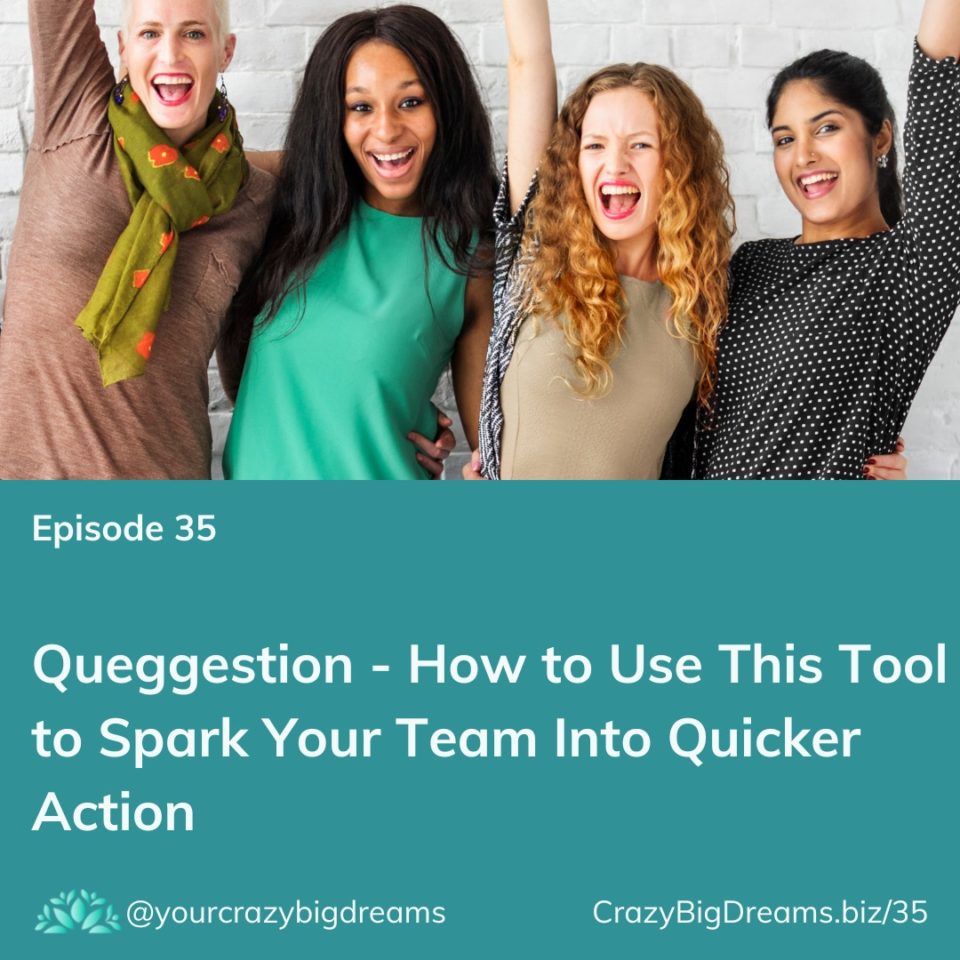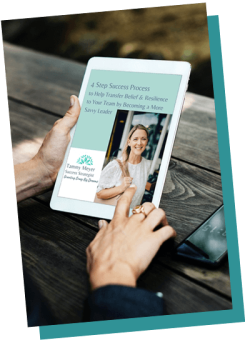Hey, we’re here for Episode 35! What is a queggestion and how do you use it!?
As mentors, we need all the tools we can master. Mentoring can be an interesting role to fulfill. You’re providing support, guidance, and feedback. Yet ultimately, actions and decisions are completely up to your team member.
Effective Tool to Help Teams Get Into Quicker Action
This is where queggestions can be effective! It’s a tool you can use to guide and support your team members. It’s a tool that can help your role as a mentor be more impactful. It’s a tool that can leave you feeling more equipped as a mentor. It can help your team members into action quicker.
Impactful Communication for Direct Sales Mentors
A queggestion is a suggestion posed as a question. You’ve likely been asking these already. You’ve certainly been on the receiving end of these. But to know what a queggestion is and when to use it is how your communication becomes more impactful as a mentor.
The opposite of a queggestion is a very open-ended question. Here are 5 different examples of an open question:
What could you do next?
What’s your next step?
What’s stopping you?
How will you approach this?
Who can you connect with?
Do you hear how open these are? The response you get could go in any direction! Often we can be surprised by a response to open questions. Your team member can take their answer in almost any direction. These are super powerful questions! It gets her thinking. Her answers are her own. Open questions reveal what’s truly at heart for your team member.
A queggestion is really like a leading question. When we use a queggestion we’re making a suggestion posed as a question. This is a bit more gentle than making a suggestion as a statement. It’s effective because you can direct a team member into more effective action. You’re imparting your experience and wisdom in a more directive way.
It helps her cut to the chase. It can also help address action you have a sense she’s avoiding, procrastinating, or reluctant to take. For valid reasons of course. But a queggestion helps bring you both together in a quicker fashion.
Let’s flip the open-ended questions into queggestions.
The first one was “What could you do next?” Let’s give this context. Let’s say your team member is asking about how to approach a client about your business opportunity. Instead of “What could you do next?” you could queggestion “What if you asked her how this opportunity would benefit her?”
You’re giving your team member the next step in her conversation with her client. You’re suggesting what form of communication to use (to speak with her vs text, email, dm) to speak with her and you’re giving her the next question to ask.
The second open question “What’s your next step?” As a queggestion this could be “What do you think about inviting her to our team event next week?”
The third open question was “What’s stopping you?” As a queggestion, this might sound like “Are you hesitant because you’re afraid of how she’ll respond?”
This queggestion is effective if you feel as though you have a good idea about why your team member is not taking action. Obviously, you would phrase the queggestion to reflect that specifically. I’m simply giving one example about being afraid of the response.
The fourth open question was “How will you approach this?” As a queggestion you could ask “What if you simply picked up the phone and called her instead of sending a text?”
Influence Your Direct Sales Teams Actions
This gets really specific in how to help her with her next step in what’s more effective. Ultimately, she still gets to decide how to approach the situation (whatever the situation) yet you’ve had the opportunity to direct and influence her decision and action.
The last example was “Who can you connect with?” As a queggestion this would be something like “Have you contacted friends from your previous job?”
Do you see how these queggestions are leading yet effective? You get to pose a question, leaving your team member to respond however she wants, yet you’re imparting your experience and wisdom into the conversation.
I know you’re already using queggestions in your mentor conversations. Now you have the awareness to really think about how you can use these more consciously. Ultimately, to be more intentional in how and when you lead a team member into action.
Go ahead and experiment with queggestions this week! Don’t overthink it. Simply be more aware and intentional in your conversations. I can’t wait to hear how it goes.
Click on over to Instagram and share a queggestion you use this week.
The best is yet to come! Always.






